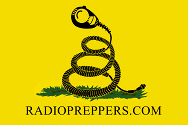- Welcome to Radio Preppers.
News:
Buy me a coffee: https://ko-fi.com/gilgsn
Paypal:
https://www.paypal.com/biz/fund?id=WEYR7GMA494QL
YouTube:
https://www.youtube.com/c/radioprepper
Twitch: https://www.twitch.tv/radioprepper
Shirt & Mug:
https://teespring.com/stores/radio-preppers
Patreon:
https://www.patreon.com/radioprepper
Odysee:
https://odysee.com/@RadioPrepper:d
Facebook:
https://www.facebook.com/groups/radiopreppers/
Thingiverse:
https://www.thingiverse.com/Radio_Prepper
Send Bitcoins to: bc1qc5jq4dxt7359sh80lkv9v8rlsgnh322hmn6xyc
Let's talk medicine.
Started by piggybankcowboy, October 01, 2012, 07:35:32 PM
Previous topic - Next topic
User actions
